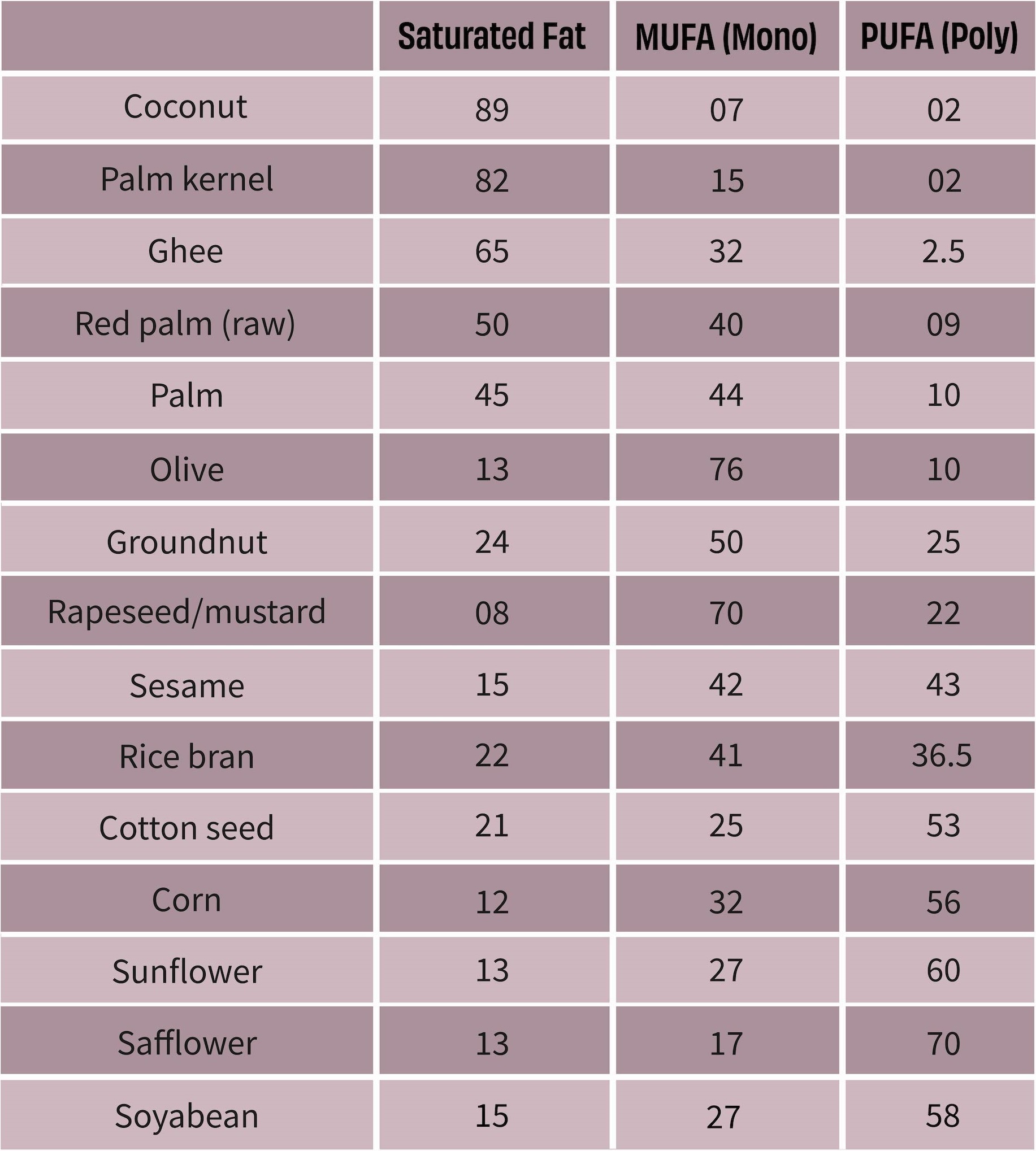The Link Between Cooking Oils And Cancer: Despite Cooking being an essential part of life, choosing the wrong cooking oil can increase the risk of cancer. This comprehensive guide will explore cooking oils linked to cancer and offer healthier alternatives for your well-being.
Editor's Notes: Understanding the correlation between cooking oils and cancer is critical. That's why we published this guide today - to empower you with knowledge and help you make informed choices that support your health.
Our team meticulously analyzed scientific data and consulted reputable sources to compile this comprehensive guide. Our goal is to provide you with clear, evidence-based information to make informed decisions about the cooking oils you use daily.
Key Differences:
| Cooking Oil | Health Concerns | Healthier Alternatives |
|---|---|---|
| Canola Oil | High in unhealthy omega-6 fatty acids, may contribute to inflammation and cancer | Olive oil, avocado oil |
| Sunflower Oil | Similar to canola oil, high in omega-6 fatty acids and may promote cancer | Safflower oil, olive oil |
| Palm Oil | Contains saturated fats that can increase cholesterol levels and contribute to cancer | Coconut oil, olive oil |
| Olive Oil | Rich in healthy monounsaturated fats, antioxidants, and anti-inflammatory properties | Healthier alternative to the above oils |
| Avocado Oil | Contains antioxidants, vitamins, and minerals, promotes heart and brain health | Healthier alternative to unhealthy cooking oils |
Transition to Main Article Topics:
FAQ
This comprehensive guide explores the complex relationship between cooking oils and cancer, providing valuable insights based on scientific research and expert opinions. The following FAQs address common questions and concerns, offering a deeper understanding of the topic.

8 tips to choose the right cooking oil - Truth Be Told - Source thewholetruthfoods.com
Question 1: Are all cooking oils linked to cancer?
Not all cooking oils pose the same cancer risk. Refined oils, such as canola and vegetable oil, are generally considered less risky. However, unrefined oils, like extra virgin olive oil and coconut oil, may contain beneficial compounds that may offer some protection against cancer.
Question 2: What is the role of smoke point in cooking oil safety?
The smoke point of an oil refers to the temperature at which it starts to break down and produce harmful compounds. Using oils at temperatures exceeding their smoke points can release these compounds, increasing the risk of cancer.
Question 3: How can I reduce the cancer risk associated with cooking oils?
To minimize the risk, choose healthy oils with high smoke points and avoid overheating them. Additionally, consider using non-stick cookware, which can help reduce the formation of harmful compounds.
Question 4: Are there any cooking methods that can increase the risk of cancer?
Cooking methods involving high temperatures, such as frying or grilling, can increase the formation of potentially carcinogenic compounds. Opting for healthier methods like steaming, boiling, or baking can help reduce this risk.
Question 5: What other factors should be considered when choosing cooking oils?
Besides cancer risk, consider factors such as nutritional value, flavor profile, and availability. By carefully selecting oils that meet your needs, you can make informed choices that promote both flavor and well-being.
Question 6: Where can I find more detailed information on this topic?
For a comprehensive exploration of the link between cooking oils and cancer, refer to The Link Between Cooking Oils And Cancer: A Comprehensive Guide. This extensive resource provides in-depth analysis, practical tips, and additional insights to help you make informed decisions about your cooking choices.
Understanding the complex relationship between cooking oils and cancer is crucial for making informed choices that support both taste and health. By considering the insights provided in this FAQ, you can navigate the vast world of cooking oils with greater confidence, reducing risks and promoting well-being.
As our understanding of nutrition and health continues to evolve, it is essential to stay informed with the latest research and recommendations. By incorporating these principles into your culinary practices, you can enjoy delicious and nutritious meals that promote a healthier lifestyle.
Tips
To protect your health, it is vital to exercise caution when using cooking oils. Here are some crucial tips to consider:
Tip 1: Opt for Oils with High Smoke Points

What Is Canola Oil Versus Vegetable Oil? - The Difference Between - Source www.thepioneerwoman.com
Oils with high smoke points, such as avocado oil or grapeseed oil, are more stable under heat and less likely to release harmful compounds. Choose these oils for high-temperature cooking methods like frying or searing.
Tip 2: Avoid Reusing Cooking Oils
Reusing cooking oils can increase the accumulation of harmful compounds. Dispose of used oil properly and always use fresh oil for each cooking session.
Tip 3: Limit Processed Foods High in Unhealthy Oils
Many processed foods contain unhealthy oils, such as partially hydrogenated oils or palm oil. Limit the consumption of these foods to reduce your exposure to potentially harmful fats.
Tip 4: Use Oils Rich in Omega-3 Fatty Acids
Omega-3 fatty acids are essential for overall health. Choose cooking oils that are rich in these nutrients, such as olive oil or flaxseed oil, to promote various health benefits.
Tip 5: Store Oils Properly
Store cooking oils in a cool, dark place away from light and heat. Exposure to these elements can degrade the oil and compromise its quality.
By following these tips, you can make informed choices when using cooking oils and minimize your exposure to potentially harmful substances.
Remember, maintaining a balanced diet and overall healthy lifestyle are crucial for optimal well-being. Consult with healthcare professionals for personalized advice on cooking oils and your specific dietary needs.
The Link Between Cooking Oils And Cancer: A Comprehensive Guide
The association between cooking oils and cancer is a crucial topic that warrants exploration. This guide presents key aspects to enhance our understanding:
- Type of Oil: Different oils, such as olive, canola, and palm, have varying effects on inflammation and oxidative stress.
- Heating Temperature: Excessive heating of oils can produce harmful compounds, such as acrylamide and polycyclic aromatic hydrocarbons (PAHs).
- Duration of Heating: Prolonged heating can increase the formation of carcinogenic compounds.
- Smoke Point: Oils with lower smoke points can burn easily, releasing hazardous substances.
- Nutritional Profile: Oils rich in polyunsaturated and monounsaturated fats may offer some protective benefits.
- Genetic Predisposition: Individuals with certain genetic variations may be more susceptible to the carcinogenic effects of cooking oils.
Understanding these aspects can empower us to make informed choices regarding our cooking practices. By opting for healthier oils, limiting excessive heating, and maintaining a balanced diet, we can mitigate potential risks and promote overall well-being.

Hælde placere hvordan eau de parfum et eau de toilette différence - Source www.oracom.fr
The Link Between Cooking Oils And Cancer: A Comprehensive Guide
Cooking oils are a staple in many kitchens, but some may be linked to an increased risk of cancer. This comprehensive guide explores the connection between cooking oils and cancer, examining the causes and effects of this relationship. Understanding the importance of this topic and its practical implications can help individuals make informed choices about their cooking habits.

Frontiers | Diversity of immune checkpoints in cancer immunotherapy - Source www.frontiersin.org
Refined oils, such as canola, corn, and soybean oils, undergo extensive processing that involves high heat and chemicals, which can produce harmful compounds. These compounds, including trans fats and free radicals, have been linked to cell damage and inflammation, which can increase the risk of certain cancers, such as breast, prostate, and colon cancer.
On the other hand, unrefined oils, like olive oil, avocado oil, and coconut oil, are processed with minimal heat and chemicals, preserving their natural antioxidants and beneficial compounds. These compounds may have anti-inflammatory and protective effects, potentially reducing the risk of cancer development.
The choice of cooking oil can significantly impact overall health and cancer risk. Substituting unrefined oils for refined oils in daily cooking can be a simple yet effective step towards reducing cancer risk and promoting a healthy lifestyle.
| Type | Processing | Health Effects |
|---|---|---|
| Refined Oils | High heat, chemicals | Increased cancer risk |
| Unrefined Oils | Minimal heat, chemicals | Anti-inflammatory, protective |
Conclusion
The link between cooking oils and cancer is a crucial consideration for individuals seeking to make healthy dietary choices. Refined oils, commonly used in processed foods and fast-food restaurants, have been associated with an increased risk of cancer due to their harmful compounds. In contrast, unrefined oils, rich in antioxidants and beneficial compounds, may offer protective effects against cancer development.
Incorporating unrefined oils into daily cooking and limiting the consumption of refined oils can be a practical and effective strategy for reducing cancer risk and promoting overall health. By understanding the connection between cooking oils and cancer, individuals can make informed choices that support their well-being.